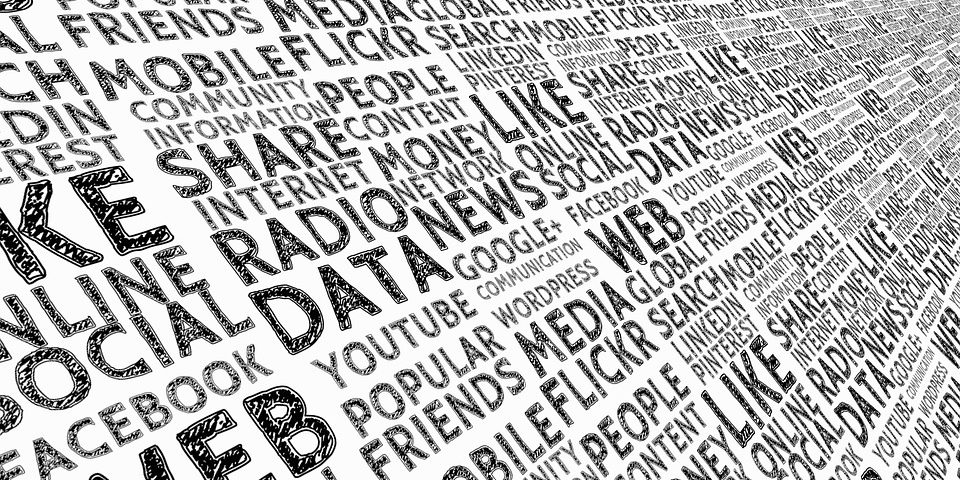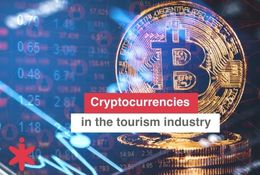From ‘Big’ to ‘Smart’: what is Smart Data and why it has revolutionized the tourism sector
From ‘Big’ to ‘Smart’: what is Smart Data and why it has revolutionized the tourism sector

Thinking China will analyze the potential of Chinese tourists in Spain
14/03/2018
The impact of social media on travel inspiration
26/04/2018From ‘Big’ to ‘Smart’: what is Smart Data and why it has revolutionized the tourism sector

The tools we used yesterday have become obsolete today, and we live in a world so accelerated that any effort to get updated must be immediate: if you haven’t done it already, forget about starting it because when you want to launch it, you will be outdated.
Do you remember how we did a few years ago to start a strategic marketing plan? We used audits, where we relied on different techniques and tools to analyze the current situation in the sector. We obtained valuable information, but the process involved a lot of time between collecting data, tabulating it, analyzing it and drawing conclusions… It was not ideal if we wanted to be pioneers and anticipate the competition or respond to a spontaneous need of the environment: it was very difficult to reach on time.
Now, with the coming of Big Data, we have that immediacy at our fingertips, which allows us to deduce better and faster what the user demands. Social Networks, forums, apps… Multiple channels, and millions of data at the service of intelligent analysis and interpretation that will lead to success.
What is Smart Data and why has it revolutionized tourism?
Smart Data, unlike Big Data, is a concept based more on the quality than quantity of information, providing a clear added value in decision making. The data analysis is an incredible tool that alerts us, for example, when visits on a page go down, clicks on a purchase button, reservations towards a tourist destination… but what it does not tell us is why users are leaving. To provide this qualitative part to our study, the human factor must come into play, which is what allows us to make the leap from Big Data to Smart Data.
In this sense, the tourism sector finds a great ally in macro-data to guide its entire marketing strategy. It is no surprise that most providers of tourism solutions, such as Expedia, can now clearly identify trends by collecting travel booking searches on the group’s websites. And yes, like you are thinking, this means that online travel agencies anticipate the interest of travelers, recommending one destination or another depending on their profile and the season of the year.
The best way to explain what Smart Data is and how it applies to the travel industry is through an example: the promotional campaign we developed for a customer focused on Jamaica as a tourist destination for the Spanish traveler. A priori, this Caribbean island is a place that does not arouse special interest for tourists of our country, but what if we build an ad hoc offer, we select the target we want to reach and we look for specific suppliers so that our proposal reaches them? This is how we managed to influence Spanish travelers who were looking for a destination in the Caribbean that offered more than just sun and beach: adventures, outdoor activities, family experience, culture… Our marketing campaign was such a success that the volume of Spanish tourists in 2017 in Jamaica has increased more than 160% and that one of the largest Spanish TO, Ávoris, bet on it among its strategic destinations, chartering a direct flight between Madrid and Montego Bay.
Be Smart
Being a Smart Thinker means considering data as the backbone of your work. How to get to the Philosopher’s Stone of the Smart? There are certain essential elements for the marketing plan:
1.- Keep your feet on the ground: have a plan based on data, trends and experience.
2.- Define the audience and the environment: How is my sector? Ask yourself this question before you begin.
3.- Identify measurable objectives linked to tangible business results: define action-oriented metric results (downloads, potential customers, revenues, increase in reserves…). Process metrics are used to identify problems and allow us to make small adjustments to improve (for example, if potential clients do not work, we consider the process metrics associated with that number and we analyze more clicks, visits and rates of conversation).
4.- Work with a resource-conscious budget: invest optimally.
5.- Follow up regularly to analyze the evolution of the campaign and if you are achieving the expected results.
The role of Smart Data in your crisis plan
Smart Data is also an ally to update your company’s Communication Plan to face possible contingencies. Modern crisis are fed by data and have much more force than in the past because they have multiple immediate channels through which to spread.
Knowing how to interpret your data well will help you protect your brand from those threats that may evolve into a crisis. And if you were already going through a situation of that kind, the data offers the possibility of doing an exhaustive monitoring of what is happening, being able to identify which are the sensitive aspects that are maintained and obtain the guides to be able to return to normality.
Big data does not allow us to guess, but to determine that there are avoidable crisis and inevitable crises, and to achieve a good prediction and use of them it is essential to do so from a perspective of intelligent use.
There are many professionals capable of making a successful marketing campaign, but an effective campaign, which is transformed into an increase in reservations and visits, can only be achieved by professionals who have joined the Smart Data train.

By María Sánchez-Grela
Managing Director
@MariaSGrela

 All the news
All the news  Back to newsroom
Back to newsroom

